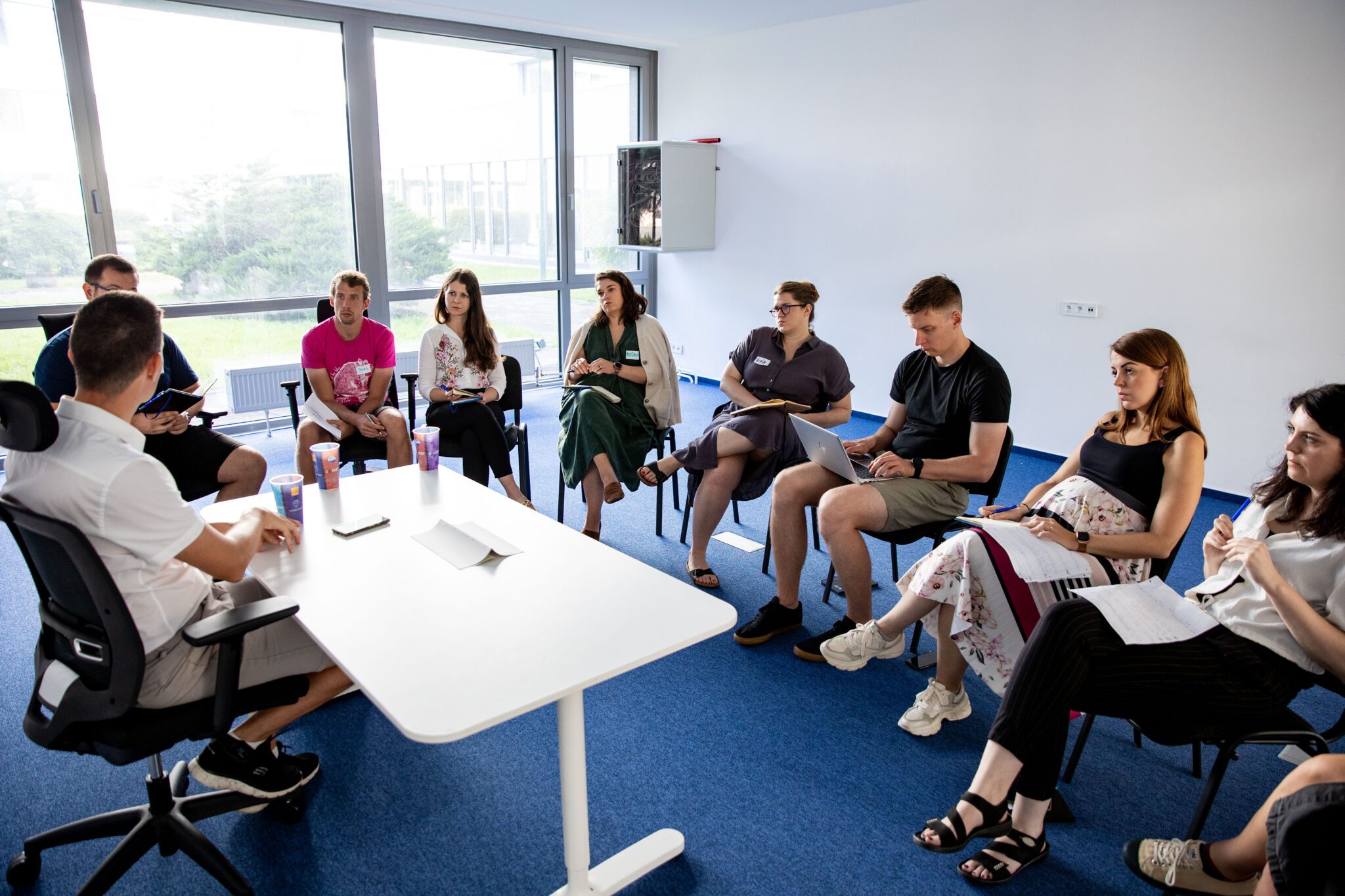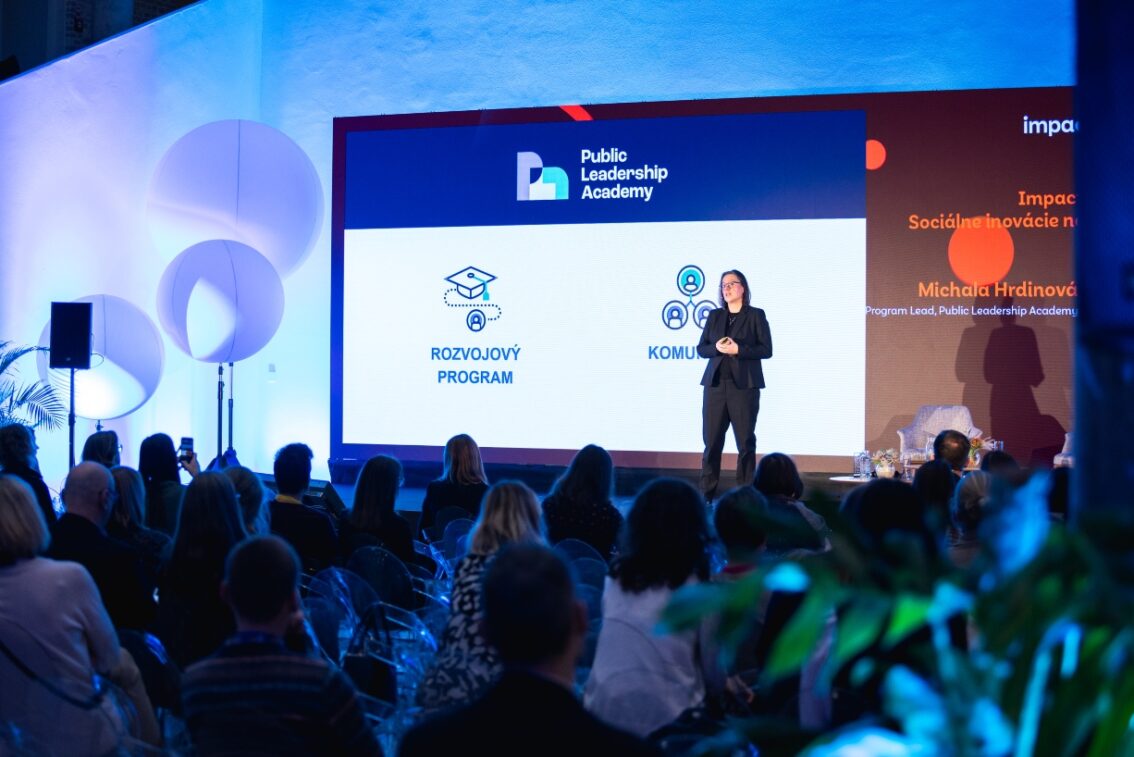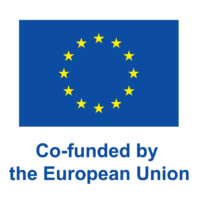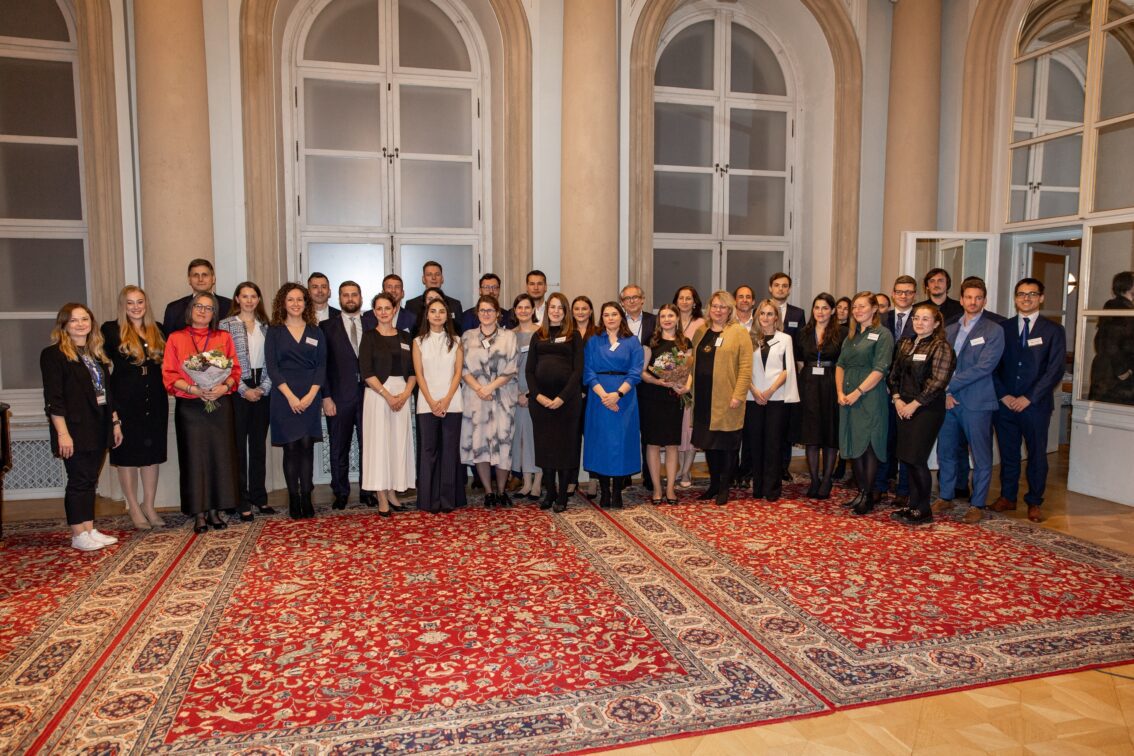The Program that Helps Professionalize Government and Municipal Offices and Innovate Public Administration
The Public Leadership Academy, which develops the personal and leadership skills of Slovak public administration workers, is part of the Impact Lab Accelerator.
Long waiting time at government offices or reluctance. Almost everyone has encountered this, and many people in Slovakia are discouraged from using public sector services because of such an approach. A well-functioning public administration can be one of the tools for a better quality of life of the citizens. Public administration workers should not only help the public fulfill their rights and obligations but can also create conditions for people to actively participate in the functioning of the state.
Improving the functioning of public administration and enhancing the quality of its services is the goal of the Public Leadership Academy program, supported by organizations Teach, Leaf, the Goodwill Clerks Club, and Nexteria. “Public Leadership Academy is based on current trends in public leadership and policymaking. It relies on approaches that have been used by other countries and public institutions worldwide for a long time,” explains the program coordinator Michala Hrdinová. This includes methods like adaptive leadership, developed at Harvard.
Adaptive leadership means learning new things. If one technique doesn’t yield desired results, an adaptive leader tries to discover new strategies that may work. Thanks to new techniques, employees and the whole society can experience growth and development.
The program was developed in collaboration with experts from the public sector, business, academia, as well as administration workers, and aims to meet the current needs of public services in Slovakia. Therefore, it focuses primarily on three key areas: leadership and personal development, management and working with people, and change implementation. “The topics of discussions and seminars cover a wide range of areas, from public finance, personal resilience, leadership, and teamwork to ethical dilemmas associated with work in the public sector,” lists the coordinator.
The program provides hundred hours of practical education, long-term support, as well as a platform for sharing know-hows and further networking within the public sector community. According to Michala Hrdinová, this has a significant impact on the participants’ work activities.
The first year showed its results
Thirty participants from 16 institutions took part in the pilot year. Among the 53 percent of women – graduates is Dušana Kurillová, an employee of the Bratislava City Hall: “My plan is to work in public administration and in leadership positions in the long term, so I felt a strong need to learn complex methods that will help me effectively lead teams. It was interesting to listen to experienced lecturers and mentors – to use their advice, avoid their mistakes, but especially to meet determined people in the program and spend time with them.”
One of the participants is Peter Hronček from the Value for Money Division at the Ministry of Finance of the Slovak Republic. He liked the concept of the Public Leadership Academy, which combines managerial education, knowledge in implementing systematic changes, and sharing experiences from good practices abroad. According to him, these were ambitious goals, but the program managed to fulfill them almost completely. Therefore, he would recommend it to all public administrative workers who want and can improve Slovakia from their position.

Within the five modules, the programme offers mentoring, workshops, lectures and analysis of model situations. Photo: Public Leadership Academy
Dušana Kurillová agrees that the course is for anyone who wants to advocate for and implement new services and policies in public administration and who needs to acquire the right tools and a community of people with similar intentions for this goal: “From my perspective, it doesn’t matter whether you lead a department, a section or your own team within the organizational structure of an institution or if you work project-based across departments. The program offers methods for various types of leaders, such as procedures for evaluating public policies, using evidence and data in their development, user-friendly methods focused on citizens, and more.”
Peter Hronček also appreciates the practical application of the acquired knowledge. According to him, the program, among other things, expanded his communication skills. “I have used the experiences from the course, for example, in preparing feedbacks for colleagues. In addition, the Public Leadership Academy has given me many argumentative skills for my daily work in meetings and negotiations with colleagues from other institutions,” he says.
He is of the opinion that completing the program was a bit time-consuming, but he thinks that it can be coordinated with work and personal life. Dušana Kurillová adds that although the course “imposes higher demands on family logistics,” she managed it even as a working mother.
However, traveling to the capital city and physical attendance may be an obstacle, especially for people from the regions. The course currently operates only based on personal meetings in Bratislava, but Michala Hrdinová says they have planned to expand to other cities since the beginning. “We have just completed the first year, which aimed to verify the interest in such a program from public workers and employees, as well as from Slovak state and public institutions, which we succeeded in,” she explains.
Expansion of the program thanks to the Impact Lab Accelerator
The Public Leadership Academy is part of the Impact Lab Accelerator program of the Pontis Foundation, which, through individual mentoring, workshops, and a grant of up to 60 thousand euros, helps established organizations expand and strengthen their activities. “Thanks to the Impact Lab, we had the opportunity to meet with two mentors who pushed us forward in the addressed topics. With the first one, we explored impact measurement after completing the first year and ways to measure impact in the future. With the second mentor, we focused on communication,” describes the coordinator of the Public Leadership Academy.
Therefore, the chosen mentor was Ondrej Kořínek, the creative director of the advertising agency Zaraguza. Thanks to him, the organization defined two groups to target communication. According to Michala Hrdinová, thanks to the mentor, they also understood that it is important not only what they write about the program on social media but also how they talk about it to the public and potential donors. Financial support will also allow the program to spread to other cities.

Michala Hrdinová, program coordinator of the Public Leadership Academy, presented the program last December at the Impact Summit. Photo: Marek Mucha

Co-funded by the European Union. Views and opinions expressed are however those of the author(s) only and do not necessarily reflect those of the European Union or European Education and Culture Executive Agency. Neither the European Union nor the granting authority can be held responsible for them.






